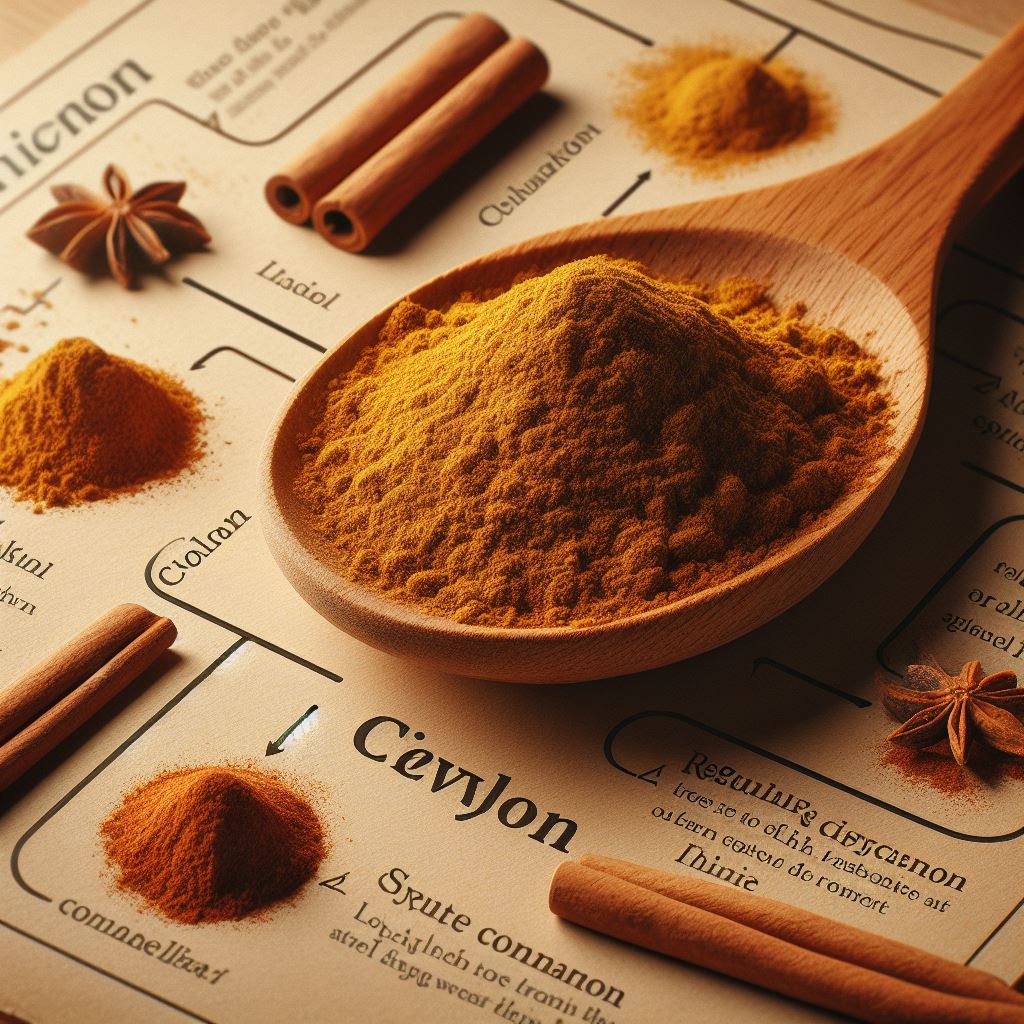INTRODUCTION :
You’re halfway through making a delicious dish, and the recipe calls for a dash of cinnamon. You reach into your spice cabinet to pull it out – but there are two bottles facing you. One says Ceylon cinnamon and the other, regular cinnamon. You find yourself in the middle of a spice identity crisis. Which one to go for?
The truth is, while they may come from the same family tree, these two varieties of cinnamon have subtle yet distinctive differences. This blog post dives deep into the world of Ceylon vs regular cinnamon, explaining their contrasting features, health benefits, and culinary uses.
Ceylon and Regular Cinnamon: Origin Story
The Ceylon and regular (or Cassia) cinnamon both hail from the same spice family, but their origins tell an entirely different tale.
Ceylon Cinnamon: The “True” Cinnamon
Ceylon cinnamon, hailed as the “True Cinnamon,” is derived from the inner bark of Cinnamomum verum, a tree native to Sri Lanka, previously known as Ceylon.
- Rarest and expensive among cinnamon varieties
- Light, primarily sweet and citrusy flavor
- Tan-colored and paper-thin bark with a tightly rolled quill structure
Regular Cinnamon: The Common Cousin
Regular cinnamon, also known as Cassia cinnamon, is extracted from the inner bark of Cinnamomum cassia or Cinnamomum aromaticum. Native to China and other parts of Southern Asia, this cinnamon is your everyday grocery store superstar.
- Most widely used cinnamon across the globe
- Darker, robust and spicy flavor compared to Ceylon
- Dark reddish-brown color with a less refined, thicker bark and hollow tubes
Health Benefits: Ceylon vs Regular Cinnamon
Both the Ceylon and regular cinnamon come packed with their health benefits, but there is a significant factor that proffers Ceylon a slight upper hand.
Coumarin Content: The Stand-Out Difference
The essential difference in health benefits between the two lies in their Coumarin content. Coumarin, a naturally occurring substance, can be harmful in large quantities.
- Regular Cinnamon contains high levels of Coumarin (0.4% to 8%)
- Ceylon cinnamon contains trace amounts of Coumarin (<0.04%)
Ceylon’s low Coumarin content makes it a safer option for regular, heavy use, particularly for those with liver conditions.
Shared Health Benefits
- Anti-Inflammatory properties
- Blood Sugar control
- Antioxidant abilities
“When it comes to health, while both types of cinnamon have benefits, Ceylon’s lower coumarin content makes it a wiser choice for regular or heavy consumption.”
Culinary Uses
How these cinnamon varieties are used in the culinary world chalks down to their taste profiles.
Ceylon Cinnamon: Preferred in dishes where a delicate, sweet flavor is desirable.
Regular Cinnamon: Used in bolder, spicy dishes and baking, where its stronger flavor shines through.
Do You ‘Cinna-know’ Your Type Now?
Whether you reach for Ceylon or regular cinnamon next time, at least now you’ll have a clearer idea of the tales they’ll add to your dishes. Remember, when it comes to health benefits, Ceylon outshines its regular counterpart due to lower coumarin levels but it eventually comes down to personal preference in flavor for culinary uses. So Cinna-know your cinnamon type and savor every dash sprinkled.
Sources:
[Ceylon vs. Cassia — Not All Cinnamon Is Created Equal](https://www.healthline.com/nutrition/ceylon-vs-cassia-cinnamon)
[5 Spices for a Healthier Life](https://www.bbcgoodfood.com/howto/guide/health-benefits-cinnamon)
